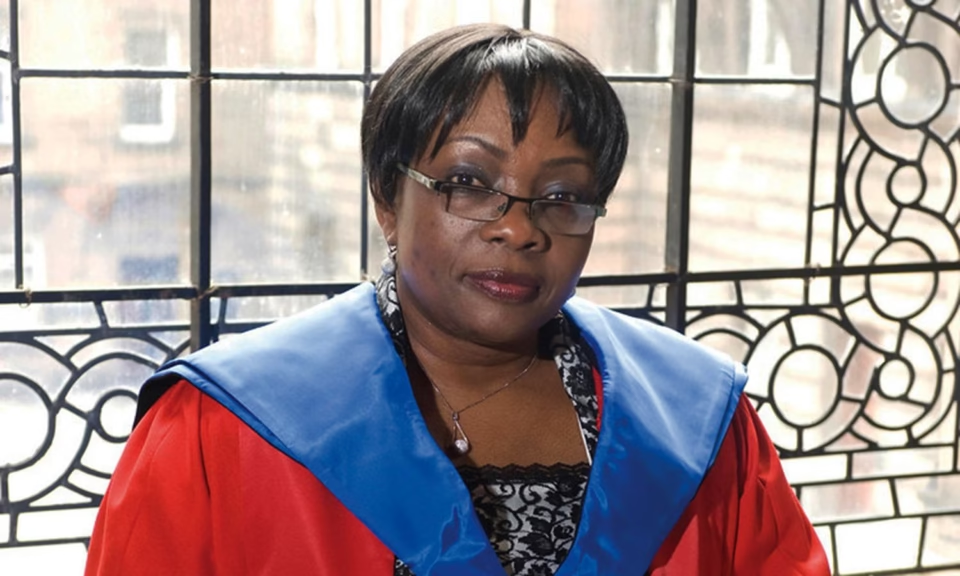Ugandan Judge Julia Sebutinde is poised to break barriers as the next president of the International Court of Justice (ICJ), cementing her legacy in international law. This milestone marks a significant turning point for the ICJ, which is grappling with mounting global disputes and shifting geopolitical landscapes.
As the first African woman to sit on the ICJ, Sebutinde’s ascent to the presidency is a testament to her remarkable career, which spans over four decades. Her journey began in Uganda, where she served as a judge at the High Court before moving on to the Special Court for Sierra Leone.
Sebutinde’s election as Vice-President of the ICJ in February 2024 was a precursor to her upcoming presidency. Her impressive track record, which includes serving as a judge at the Special Court for Sierra Leone and presiding over several high-profile cases, has earned her international recognition and respect.

As Sebutinde prepares to take the reins as president of the ICJ, she will be faced with the daunting task of navigating the complex and ever-evolving landscape of international law. However, given her remarkable career and achievements, there is no doubt that she will rise to the challenge and make a lasting impact on the ICJ and the world at large.
Judge Julia Sebutinde is set to make history as the next president of the International Court of Justice (ICJ), taking over from Judge Nawaf Salam, who has resigned to become Lebanon’s Prime Minister. This development comes after Joseph Aoun’s election as Lebanon’s President, which has significant implications for the region.
An Illustrious Career in Justice
Sebutinde, a renowned Ugandan jurist, has had an illustrious career spanning decades. She has been a judge at the ICJ since 2012 and was elected Vice-President in February 2024. Her experience also includes serving as a judge at the Special Court for Sierra Leone from 2005 to 2011.
As Sebutinde prepares to take the reins, she will be faced with the challenge of navigating complex global disputes and shifting geopolitical landscapes. Her leadership will be crucial in shaping the ICJ’s role in promoting international justice and peace.
Julia Sebutinde’s illustrious career in justice is a testament to her unwavering commitment to upholding the law. Born in Uganda’s Central Province in February 1954, Sebutinde’s rise to prominence began with her appointment to Uganda’s Supreme Court in 1996. Her tenure was marked by high-profile anti-corruption investigations that solidified her reputation as a fearless advocate for justice.
Sebutinde’s expertise extended beyond Uganda’s borders, as she gained international recognition during her tenure at the Special Court for Sierra Leone. Notably, she presided over critical cases, including the trial of former Liberian President Charles Taylor, who was found guilty of 11 counts of aiding and abetting war crimes and crimes against humanity in 2012.
Her appointment to the International Court of Justice (ICJ) in 2012 was a historic milestone, as she became the first African woman to serve on the bench of the world’s highest court. Sebutinde’s remarkable career has been punctuated by numerous accolades, including a Special Award from the Ugandan Law Society, the “Good Samaritan Award” at the Congress of Advocates International, and a Lifetime Achievement Award from the Uganda British Alumni Association

Judge Julia Sebutinde’s recent decision on the Israel-Hamas conflict has sparked intense global debate. As the first African woman to sit on the International Court of Justice (ICJ), her ruling to reject South Africa’s request for an injunction against Israel has been closely scrutinized.
Sebutinde’s decision was based on her assertion that the matter was inherently political rather than legal. While this ruling has received praise for upholding the court’s jurisdictional principles, it has also faced criticism and political pushback. Uganda’s UN Ambassador Adonia Ayebare publicly expressed disapproval, highlighting the complex and sensitive nature of the conflict.
The ICJ’s advisory opinion on the Israeli-Palestinian conflict, published in July 2024, concluded that Israel’s presence in the occupied territories violates the Palestinian right to self-determination and is illegal. However, Sebutinde’s dissenting opinion has sparked discussions about the role of international courts in addressing political conflicts.
The situation underscores the challenges faced by international courts in navigating complex geopolitical issues. As the global community continues to grapple with the Israeli-Palestinian conflict, Sebutinde’s decision serves as a reminder of the delicate balance between legal principles and political realities.
What are The Likely Challenges?
President Sebutinde’s presidency comes at a pivotal moment for the International Court of Justice (ICJ), as the court prepares to hear Israel’s defense against South Africa’s allegations of genocide in July. This high-profile case will test Sebutinde’s leadership and the court’s ability to navigate complex international disputes.

As president, Sebutinde will oversee the court’s administrative operations and play a crucial role in directing deliberations on this and other critical cases. Her experience as a judge at the ICJ and her previous tenure at the Special Court for Sierra Leone will undoubtedly serve her well in this capacity.
The ICJ’s recent provisional ruling on the Israel-South Africa case has set the stage for the upcoming hearing. The court’s decision to reject South Africa’s request for an injunction against Israel, while emphasizing the need for Israel to prevent acts of genocide, highlights the complexities of the case.
Sebutinde’s leadership will be critical in ensuring that the ICJ’s deliberations are fair, impartial, and guided by international law. As the court navigates this challenging case, Sebutinde’s experience and expertise will be essential in upholding the integrity of the ICJ and promoting international justice.



